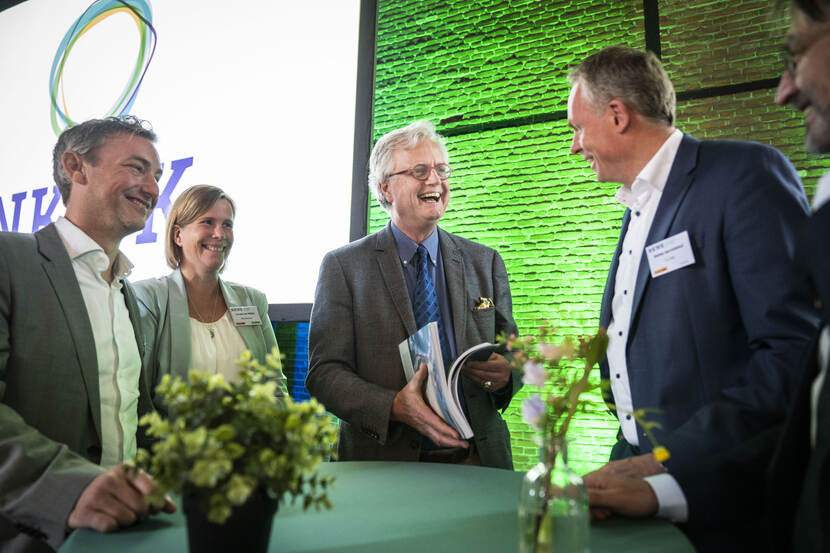The National Water and Climate Knowledge and Innovation Programme after 5 years: results and developments
During this year’s annual conference, held at the Lijm & Cultuur conference venue in Delft, the National Water and Climate Knowledge and Innovation Programme (in Dutch, abbreviated to NKWK) celebrated its fifth anniversary. ‘A fine opportunity to review the developments that the various focus areas have seen during the past few years,’ programme manager and day chair Roeland Allewijn (Rijkswaterstaat) commented. ‘And a particularly appropriate time for us to share the results of these water and climate studies with one another.’
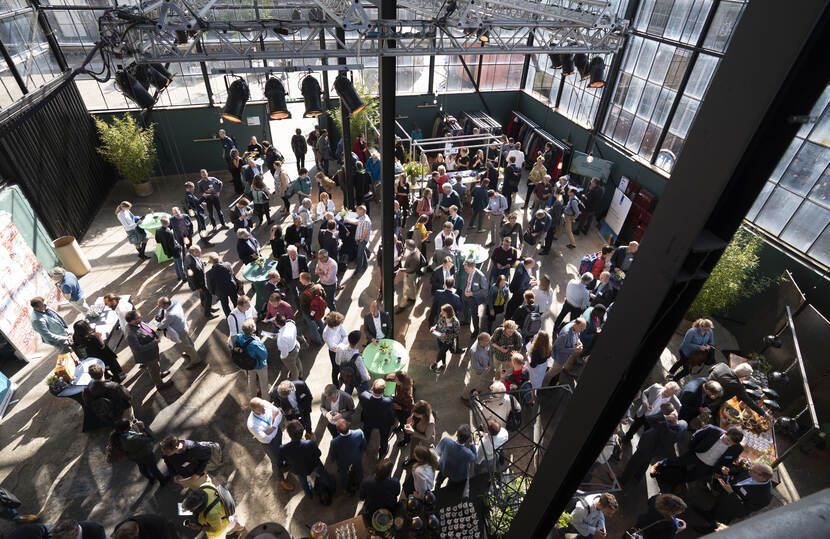
Under the National Water and Climate Knowledge and Innovation Programme, government bodies, knowledge institutes, and businesses are collaborating on pilot studies, topical issues, and long-term developments relating to water management and the climate. Their efforts are aimed at collecting facts and up-to-date know-how to underpin the policies and measures relevant to the management of our delta. Thus, the NKWK programme is vitally important to the knowledge agenda of the Delta Programme. Of course, Delta Programme Commissioner Peter Glas also made an appearance. ‘Today, after five years, we are sharing here the most recent insights and findings that are pivotal to the realisation of the Delta Programme when it comes to flood risk management, freshwater supply, and spatial adaptation, including in our inner cities. A milestone,’ the Delta Programme Commissioner stated in his opening address.
Wide range of disciplines
Delta Programme Commissioner Glas emphasised the importance of interlinkage between various disciplines. ‘We are here in Delft, a city that is renowned for its technical and engineering expertise. But by now, we know that any intention to change the world will require an approach that extends beyond engineering and technology. The very interlinkage of knowledge from various disciplines holds the solution to rendering our delta liveable and keeping it healthy, so that we can pass it on to the younger generations.’
Said younger generation was well represented at the conference. In addition to more than 350 water professionals from across the entire nation, nearly 60 students and young professionals had registered. They were enrolled in a special Future Water Leaders programme, which featured elements such as – voluntary – partnerships with senior water professionals; arrangement of work placement positions, graduation options, and employment opportunities; and the possibility of discovering one’s personal “water identity”.
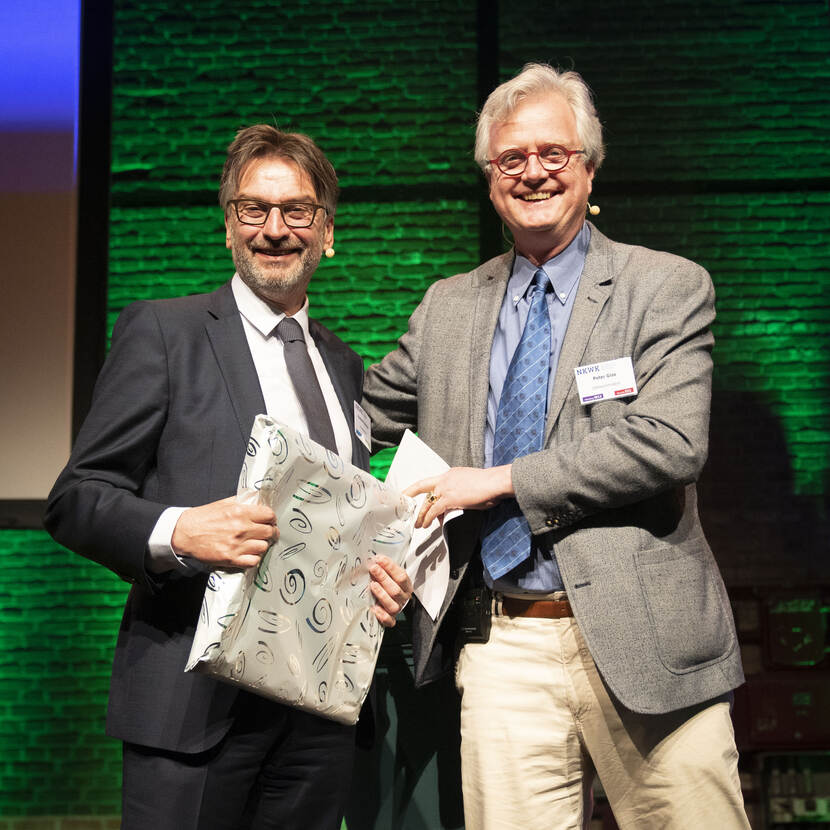
Farewell
‘Actively involving young people and the education sector is important,’ according to Roeland Allewijn, who during the plenary session also announced his farewell as NKWK leader. With effect from 1 November 2018, he has taken up the position of Chief Data Officer at Rijkswaterstaat, the executive branch of the Ministry of Infrastructure and Water Management. ‘It pains me to say that this will be my last NKWK conference. However, I am confident that Katja Portegies, Director of Safety and Water at Rijkswaterstaat and no stranger to many of you, will make an excellent successor.’
During the plenary session, representatives of the Ministry of Infrastructure and Water Management, Rijkswaterstaat, the Delfland district water control board, the Top Consortium for Delta Technology Knowledge and Innovation, and Delft University of Technology discussed the usefulness and necessity of continuing research into water and climate issues. The plenary session was followed by the first round of workshops. The topical issues of “Drought 2019” and the “Rising Sea Level Knowledge Programme” garnered a great deal of interest. Workshops focused on “Climate adaptation measures in cities”, “European collaboration”, and “Shifting balance around our rivers” also attracted many interested attendees.
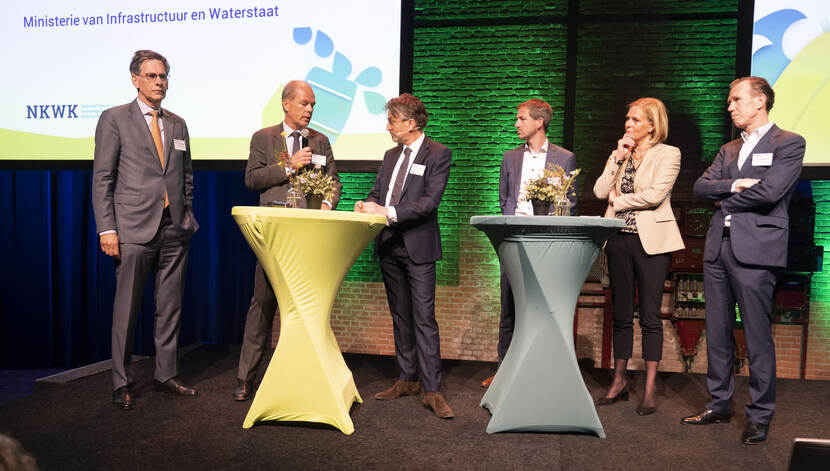
Field trips
During the lunch break, most of the participants went out to join one of the eleven field trips, intended to gain a first-hand impression of what is actually being accomplished on the basis of research and pilot studies. One such field trip headed for the Hollandse IJssel storm surge barrier. Other options included the Flood-proof Holland testing grounds, the Water Street operated by Delft University of Technology, and a visit to a sustainable market gardener in the Westland area. Those who participated in the Aquathermics field trip first attended the signing of the Aquathermics Green Deal, whereupon they headed for the Harnaschpolder sewage water purification plant, where heat recovered from waste water is being used to heat 1400 houses.
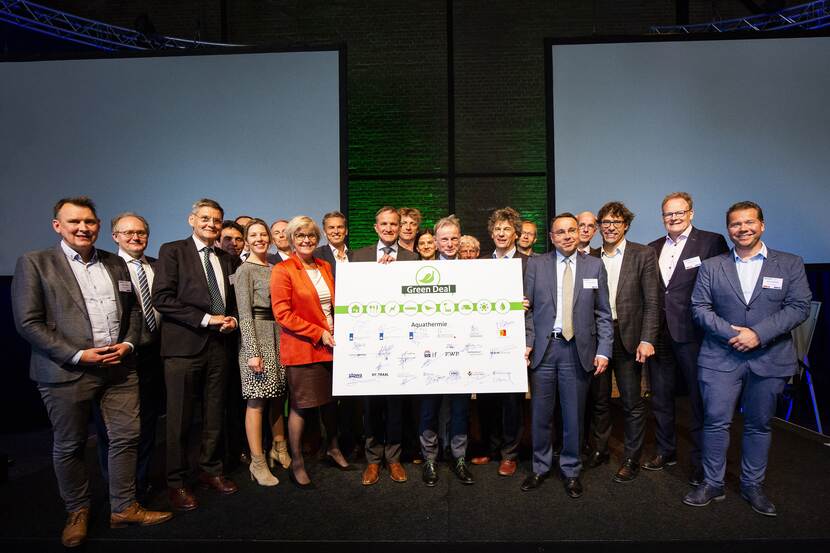
Around 4 PM, the water professionals, filled with new insights and experiences, once more gathered in the main auditorium of the Lijm & Cultuur building for the plenary closing session. Following the closing film, the concluding speech by day chair Allewijn – definitely his last one this time – and the drinks, all departing attendees received a book entitled The sand motor: a nature-based response to climate change, featuring experiences and lessons learned from this project.
